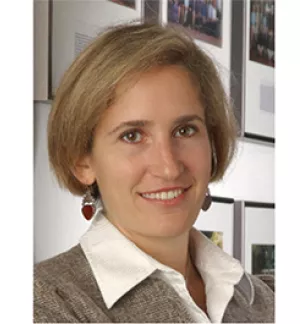Not Today But Perhaps Tomorrow
The Encyclopedia Britannica defines a revolution as "...a fundamental, rapid, and often irreversible change in the established order." While, without question, some significant events have taken place within Pakistan over the past ten months, culminating in Benazir Bhutto's assassination on December 27, 2007, the broader context suggests that any swift change is unlikely. In fact, most profoundly, we could be seeing the first signs of wider public participation in the political system; if this continues and is encouraged, it could lead to a slow-burning revolution that transforms the nation's future.
Since March 2007, Pakistan has been going through a period of upheaval. Following eight years of leadership by President Musharraf, the moderate majority in Pakistan has finally found its voice. Demonstrations, which started last March, have continued in one form or another since then, led at various times by lawyers, Mullahs, and political party leaders. Throughout the presidential and now parliamentary elections, the people have taken to the streets to protest for fair elections, freedoms, or independent institutions. However, what is holding the country back is the sheer lack of effective political leaders to channel these sentiments: individuals who will put Pakistan on a positive trajectory towards a stable democracy, economic growth, transparency, and institution building. A revolution, if there is one, could bring chaos and instability for a while; any truly positive progress for Pakistan will be long in coming.
The Context
Unlike many other countries that have undergone revolution in recent years, Pakistan has long played with democracy. Since gaining independence in 1947, Pakistan has veered back and forth between democratically-elected and authoritarian military leaders. Its earliest years were unstable: Pakistan fought against its neighbor, India, as they established their borders and their populations migrated. This acrimonious relationship continued; three wars were fought, including the 1971 war over the split of East and West Pakistan, which resulted in the creation of Bangladesh.
Following the loss of East Pakistan under the rule of Yahya Khan, a former chief of army staff, a new civilian leader, Zulfiqar Ali Bhutto, was elected in 1972. He was deposed in 1979 by another general, Zia ul Haq. Zia was the first leader to truly try to change the secular nature of Pakistan that had been inculcated by Pakistan's first leader, Muhammad Ali Jinnah.
Zia died in 1988 in a plane crash, and Zulfiqar Ali Bhutto's daughter, Benazir Bhutto, was elected for the first time. For eleven years, between 1988 and 1999, democracy reigned, unstable as it might have been, alternating between Bhutto and Nawaz Sharif, with neither completing a full term. Finally, in October 1999, another chief of army staff, Pervez Musharraf, led a coup against Sharif and took over as president.
Over the past eight years, President Musharraf has done many good things for Pakistan, most notably building a relatively stable and fast growing economy (GDP growth in 2006 was 6.5 percent). On the other hand, he has not pushed progress on other very vital areas such as building independent institutions, improving the provision of education and other social services, or building local governance systems and networks. Over the past year, the situation has worsened significantly with the dismissal of Supreme Court Chief Justice Chaudhry in March 2007, a state of emergency declared in November, and Benazir Bhutto's assassination the following month. The judiciary is now thoroughly politicized, the media is restricted by a "code of conduct," and the interim government is biased.
A New Actor: People Power
Historically, only three players have had influence in changing Pakistan's future: the politicians, the Mullahs, and the military.
Politics in Pakistan is personality-driven. Until her assassination on December 27, Benazir Bhutto led the Pakistan People's Party (PPP), the party that her father, Zulfiqar Ali Bhutto, founded. Directed by her will, and following a party meeting, Benazir's 19-year-old son, Bilawal Bhutto Zardari, will be filling her shoes with her husband, Asif Zardari, acting as regent while Bilawal finishes his Oxford degree. The other major secular party, the Pakistan Muslim League – Nawaz (PML-N), is led by Nawaz Sharif and supported by his brother, Shahbaz. The Pakistan Muslim League – Quaid-i-Azam (PML-Q) was founded by President Musharraf, and will not last if he leaves. One of the smaller parties, a more religious one, is led by former cricket star, Imran Khan. Each of these parties is defined by its leaders rather than by its policies. There are few attempts to educate and develop new, younger leaders to replace them. The consequences of this are at least two-fold: without new blood Pakistan will not break out of what has been 60 years of oscillation between authoritarian and quasi-democratic states, and until there are new drivers for transformation in these senior ranks, any revolution would be headless and thus ineffective.
The Mullahs have enormous social but little political power. The religious coalition, the Muttahida Majlis-e-Amal (MMA), typically garners less than 6 percent of the popular vote (the exception being the October 2002 national elections, "managed" by President Musharraf, where they gained 11.3 percent). The MMA has ruled for the past five years in the North West Frontier Province (NWFP) and shared power with the PML-Q in Baluchistan. After five years of governance, they are widely regarded as incompetent. While many in Pakistan might support some of the policies of the Mullahs, such as the imposition of shari'a law, they do not support their reign.
As Aeyesha Siddiqa made clear in her book Military Inc.: Inside Pakistan's Military Economy, Pakistan's military influences almost all aspects of Pakistan, including policy, the economy, social services, and security. The military has repeatedly played a central role in Pakistani politics, either directly, by leading coups, or more indirectly, by affecting policy debates on major political issues from nuclear weapons to the fight against terrorism. Both Bhutto and Sharif have each separately stated that, while prime minister in the 1980s and 1990s, they did not control the nation's strategic weaponry.
In March 2007, a fourth actor appeared on Pakistan's scene: the people. Not since the elections of 1977, won by Zulfiqar Ali Bhutto, has the country seen such a grass-roots movement for change. This hitherto silent majority has already had a significant impact on the country's political development. They induced President Musharraf to reinstate the Supreme Court Chief Justice, ensuring – at least for a short while – the continued independence of the judiciary (he was since re-dismissed). They had a role in ensuring that Musharraf followed through on his promise to step down as chief of army staff before being reappointed as president in mid-November. And still on the streets in the weeks following Bhutto's assassination, they now appear to be forcing Musharraf to continue to pursue at least a quasi-legitimate political process and, in particular, to investigate the assassination in conjunction with outside and unbiased assistance from Britain's Scotland Yard.
What is today unclear is whether this new force will be sustainable. The people's rise was made possible, in part, by the growth in the middle class in Pakistan, providing breathing space to consider issues beyond mere survival. The event that fired engagement was the dismissal of Chaudhry, an act that appeared to mark a reversal of some the freedoms that had been granted by President Musharraf in his earlier years. It is too early to tell whether any future reversals (such as managed elections) would provide enough incentive for the people to stay active, or would instead result in apathy and a sense of disempowerment. International support and continued attention could provide some security and encouragement, but any changes will have to be internal.
Musharraf's Downfall
President Musharraf wants to retain power; unfortunately, it appears that the people disagree. His approval ratings have declined from 51 percent in late 2006 to 28 percent today. [i] In December, polls indicated that around 67 percent wanted Musharraf to resign immediately. He was blamed by many for Bhutto's assassination, and as a result his support has likely plummeted further, driving his and the Election Commission's decision to delay elections until February 18, 2008. Despite the clear views of the majority, Musharraf continues to prioritize his own political survival. However, today he is in an untenable situation: regardless of whether he conducts himself and the elections legitimately, he is no longer trusted by either the Pakistani people or the international community. For him, perception has become reality, and the perception is not good.
In addition to lacking the support of the people, over the past year Musharraf has increasingly lost support from two other groups in Pakistan: the political parties (a number of his cabinet members have resigned and switched allegiances) and the Mullahs (the siege and subsequent attack against the Red Mosque in July 2007 ensured this opposition). Having succumbed to pressure to remove his uniform in November, it is increasingly unclear how much influence he will retain over the last player in Pakistan, the military. If the international community, particularly the United States, were to reject Musharraf (as could still happen if the elections are overtly illegitimate), then it is unlikely that the military would stick with him for long. Without the support of this final group, Musharraf is unlikely to remain President.
A Brewing Storm
The lack of predictability and transparency through both the presidential and parliamentary elections (the latter still ongoing) have compounded the confusion, the instability, and Musharraf's loss of credibility. Tensions have risen since October 6, when the presidential elections were called. Many of the parties boycotted or didn't vote, leading to Musharraf's substantial victory. But the parties did file legal cases against the process and his legitimacy to run, leading in early November to Musharraf calling a state of emergency and soon afterwards dismissing all of those Supreme Court justices who would not support him. These machinations, culminating in Musharraf removing his uniform and being reinstated as president for a new term, only raised the temperature.
In early December, the parliamentary elections were called for January 8 2008, and political campaigning started. Both Benazir Bhutto and Nawaz Sharif had returned to Pakistan for the race and were battling it out on the streets. The process was complicated by the necessity for these two parties to also work together to push for a legitimate process. It seemed as though, if a fair and free election were held, the PPP would fulfill polling predictions and win, albeit without a ruling majority. But after Benazir Bhutto was assassinated, for three days it seemed as though Pakistan was going to boil over.
These political fights have been compounded in the past months by a concurrent rise in militancy, previously largely contained within the Federally Administered Tribal Areas (FATA) along the Pakistan-Afghanistan border, but which have started to spread, commingling with the ongoing sectarian violence throughout Pakistan and the fight for more autonomy in the southwest state of Baluchistan. The July siege against the Red Mosque provided the extremists with an excuse to fight. The political process distracted both the government and the international community. The political campaigns have been targeted – not just the attack against Bhutto, but also others against the PML-Q and the PML-N. Security in Pakistan is fading, a fact made clear in January 2008 as we began to see refugees flood into Afghanistan from Pakistan, the former being perceived as providing a safer environment.
A Lack of Options
Tensions will remain on the boil at least until the parliamentary elections, which are currently scheduled for February 18. The militant attacks will not diminish, particularly when they appear to be having such a powerful impact. And the political fights are only going to continue, perhaps compounded by the additional confusion surrounding the new and multi-headed leadership of the PPP.
What is clear, however, is that the people will not accept a Musharraf victory. While he does retain some support, it is fading fast. Despite his efforts, he cannot win the upcoming elections legitimately, and if he does so illegitimately, the streets are likely to become uncontrollable. As Musharraf himself is no longer chief of army staff, indications are that if his replacement, General Ashfaq Pervez Kiyani, is asked to impose martial law, he will decline, being more loyal to Pakistan than to Musharraf.
So, if not a Musharraf-led parliament, then what? According to polls conducted in November 2007, if a legitimate election were held, the PPP, the only truly national party, would win by a slight margin. Following Bhutto's assassination, all indications are that the PPP will gain additional sympathetic support, and could now even garner a majority, allowing them to rule solo rather than in a coalition. The PML-N will likely also benefit slightly from the sympathy vote, the loser being Musharraf's PML-Q.
The debate surrounding who will win is, however, less relevant than one might initially think. If Musharraf does manage to hold on to power, Pakistan will only get more of what has been seen for the past eight years. Yet behind this wall, the frustrations of the people will rise, perhaps even exploding during the next administration, leading to real chaos and, if played right by the religious parties, a rise in their power and influence. If Nawaz Sharif wins, Pakistan will go back to the 1990s and his ineffective government. The only real question is what a PPP success would look like. Zardari, Bhutto's husband and the acting party chairman, was known to be corrupt and incompetent during Benazir's reign; there is no reason to think that has changed. However, PPP distaste for Zardari is so great (only 5 percent of PPP cadre supported his leadership in January polling) that a split in the PPP could result in a spin-off party led by a more competent senior figure such as Aitzaz Ahsan, the current president of the Supreme Court Bar Association still under house arrest. Perhaps Benazir's recent legacy – a strong desire for democracy – could prevail, resulting in an administration that promotes institution building and the separation of military and civilian powers.
However one looks at it, the options available to the Pakistani people are all regurgitated from previous administrations. There can be no revolution as there are no new and effective leaders to follow.
A Revolution Long in Coming
A revolution is a fundamental and rapid change in the established order. Today, the lack of leadership in Pakistan prevents this from occurring. The options available to the people are all former rulers; the personality politics that characterizes Pakistan ensures that this will not change.
Things could be different if one looks further into the future. In 2007, a fundamental adjustment occurred when the people made clear their intention to participate. They have had some degree of success in forcing both President Musharraf and the opposition parties to listen. It is not yet clear whether this profile will be encouraged, or whether it will die out from lack of support and effect. In order to be maintained, the people will have to see some success from their efforts in the coming election, not just in the result, but in the policies implemented by the new leadership and perhaps in time even new parties or new leaders to follow. Longer-term efforts will be needed, not just from Pakistanis but also from the international community, to help grow institutions and grassroots organizations, and to develop these leaders. That would require truly a more enduring strategy from outside groups as any deep-seated change in the political system will be long to take effect. And, it will require the build up of trust between these nations and the Pakistan government and people, something that is sorely lacking today, particularly vis-à-vis the United States. But the arrival on the scene of the silent and moderate majority could be the first step in a slower but more fundamental institutional change in Pakistan.
On the other hand, if the people are not supported in having their voices heard, the implications for Pakistan over the long-term could turn the other way. If democracy doesn't bring them benefits, many will turn to other less desirable mechanisms to effect change. And the new militant leadership that we are seeing along the Pakistan-Afghanistan border could find more traction within the nation, leading the country down a dark path. Perhaps this way will also bring about a revolution, but it will be one that nobody wants to see take place.
This article was originally published in the Harvard International Review: http://www.harvardir.org
[i] IRI Index: Pakistan Public Opinion Survey, November 19-28, 2007. International Republican Institute. Available online at: http://www.iri.org/mena/pakistan/pdfs/2007-12-12-pakistan-poll.pdf
Dormandy, Xenia. “A Pakistani Revolution.” Harvard International Review, February 2008
The full text of this publication is available via Harvard International Review.



